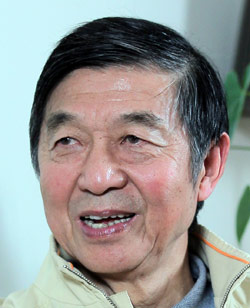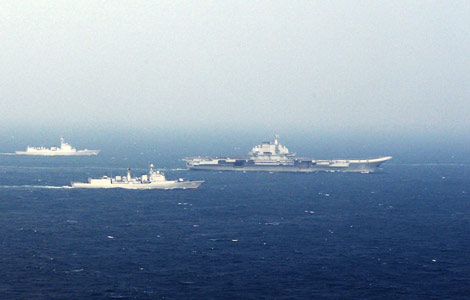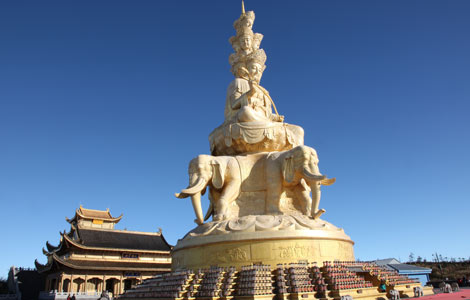Abe's policies toward China to boomerang
Updated: 2014-01-02 01:08
By WU JIAO and ZHANG YUNBI (China Daily)
|
||||||||
|
 |
|
Wu Jianmin |
Japanese Prime Minister Shinzo Abe's nationalistic policies will "not go far", as his country's economic interests are intertwined with the world's, especially in Asia, a veteran diplomat says.
Abe's counter-China policies will boomerang, said Wu Jianmin, 74, executive vice-chairman of the China Institute for Innovation and Development Strategy, a think tank.
Wu made the comments in an interview with China Daily in late December, with Abe proceeding with hawkish policies during his one year in office.
"What Shinzo Abe did is not accidental, but has a complicated background," Wu said.
Regional tensions increased on Dec 26 when Abe visited the Yasukuni Shrine, which honors 14 Class-A war criminals from World War II. The visit was the first to the shrine by a Japanese prime minister in office since 2006.
Japan has experienced economic stagnation since its economic bubble burst in the 1990s, and it has seen seven prime ministers in six years.
"Under such circumstances, Abe is flying the banner of nationalism to fan the public mood and shore up his public image," Wu said.
He said Abe's nationalism has alarmed not only China, but many others, including the United States.
Given that Japan's interests are deeply rooted in Asia and that it is impossible for the country to risk its "enormous" trade with China, Abe's nationalism "will not go far", Wu said.
He also said that China and some of its neighbors should manage and control tensions. People-to-people exchanges and economic cooperation between China and Japan should be advanced, Wu added.
His comments come as China faces challenges in the region from competing territorial claims.
Wu said confrontations have led to great losses on all sides and have affected cooperation bilaterally and regionally.
"Some people said confrontation is affordable. But do they calculate the cost of the confrontation? Do they want an everybody-is-a-loser situation to persist?" Wu asked.
"The relationship between China and neighboring countries has developed enormously in the past 30 years, creating huge common interests, which have every reason to be preserved," Wu said.
He also voiced optimism for growth in the Asia-Pacific region and for stability, although disputes and the US Asia-pivot strategy have caused conflicts in the region.
Contact the writers at wujiao@chinadaily.com.cn and zhangyunbi@chinadaily.com.cn

 First photos of Liaoning battle group made public
First photos of Liaoning battle group made public
 US First Family out for shave ice in Hawaii
US First Family out for shave ice in Hawaii
 New Year's Eve celebrations in Times Square
New Year's Eve celebrations in Times Square
 Revellers embrace the New Year at Great Wall
Revellers embrace the New Year at Great Wall
 Israel frees 26 Palestinian prisoners
Israel frees 26 Palestinian prisoners
 Gen Y's motto: Show me the money
Gen Y's motto: Show me the money
 Sacred mountain of wonders
Sacred mountain of wonders
 Schumacher 'slightly better' after 2nd operation
Schumacher 'slightly better' after 2nd operation
Most Viewed
Editor's Picks

|

|

|

|

|

|
Today's Top News
Bill de Blasio: New York “won’t wait” to tackle inequality
Kim seeks ROK ties, warns US of nuclear 'disaster'
NGO ends SOS on funding
Strong China-US trade and investment links
De Blasio sworn in as NYC mayor
Diplomacy to focus on neighborhood
New local bonds OK'd to pay off old debt
Abe's policies to boomerang
US Weekly

|

|







